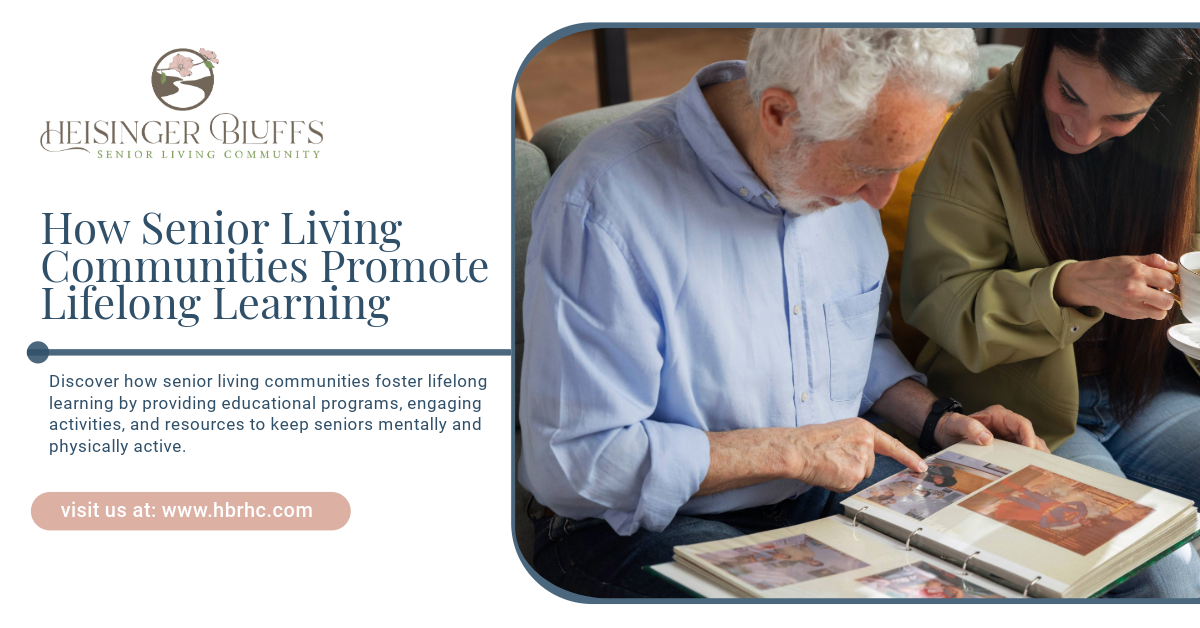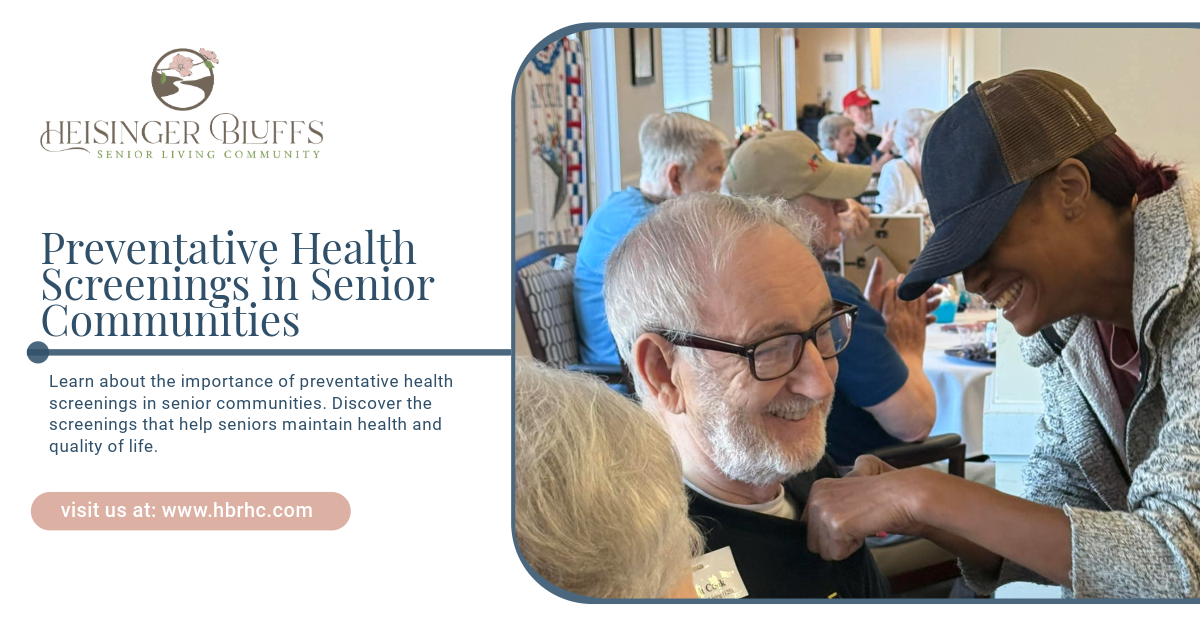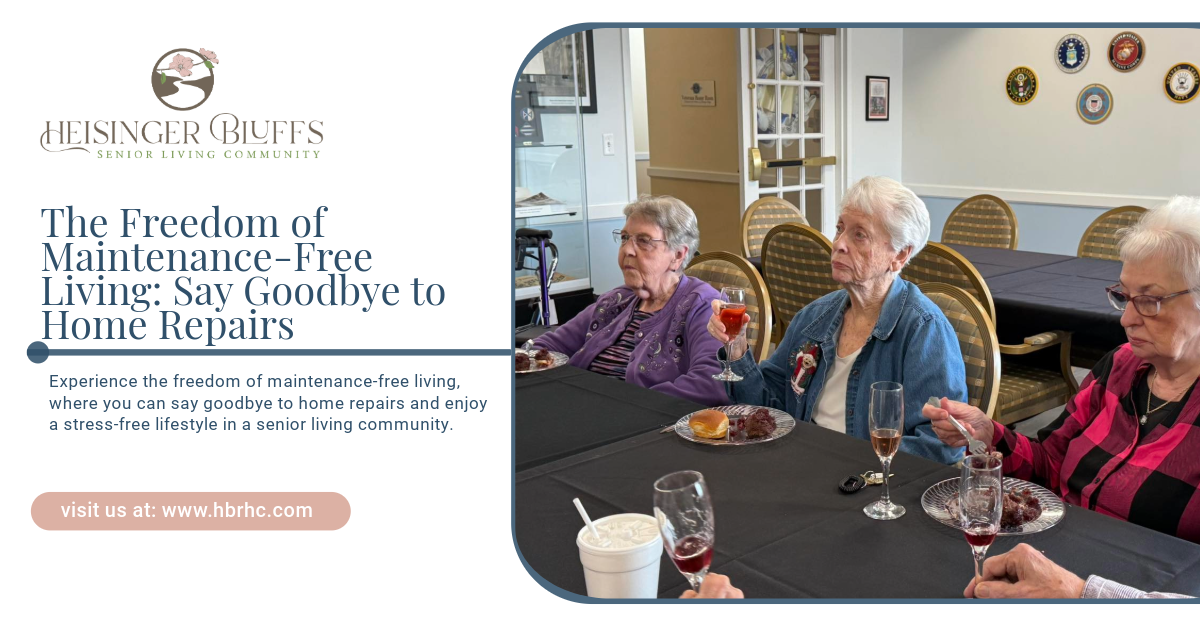How Senior Living Communities Promote Lifelong Learning

The Role of Senior Living Communities in Promoting Lifelong Learning
As we age, the desire to learn doesn’t simply disappear. In fact, many seniors find that their later years offer an ideal opportunity to explore new interests, acquire new skills, and expand their knowledge. Senior living communities play a vital role in supporting lifelong learning, offering an environment where seniors can stay mentally engaged, build meaningful relationships, and enjoy a sense of accomplishment. But how exactly do these communities promote lifelong learning, and why is it so important for seniors?
In this post, we’ll explore how senior living communities provide diverse opportunities for learning, from structured educational programs to everyday activities that stimulate the mind. Lifelong learning offers a variety of benefits for seniors, including improved cognitive health, emotional well-being, and a sense of purpose.
Engaging Educational Programs
Senior living communities typically offer a wide array of educational programs designed to engage residents in different ways. These programs often cover a variety of subjects, including history, science, art, literature, and technology. Here are some of the most common types of educational offerings in senior living communities:
1. Lecture Series and Guest Speakers
Many senior living communities bring in guest speakers or organize lecture series on topics that appeal to the intellectual interests of residents. These talks may cover a variety of subjects, from global events to local history, providing seniors with a chance to expand their knowledge and participate in stimulating discussions.
2. Book Clubs
Book clubs are another great way to promote lifelong learning among seniors. Residents can join in on book discussions, read new and classic literature, and even explore genres or authors they may not have encountered before. This type of social learning helps seniors engage with others and expand their literary knowledge in a fun, interactive way.
3. Workshops and Classes
From art workshops to technology classes, senior living communities often offer hands-on learning opportunities that allow residents to explore new skills. These programs can range from painting, writing, and photography to learning how to use smartphones or tablets. Hands-on experiences help seniors stay engaged and develop new hobbies, keeping both their minds and bodies active.
Social Learning Opportunities
Social interactions are a key component of lifelong learning, and senior living communities recognize the value of fostering a social learning environment. Learning from peers is just as important as formal education, and seniors often benefit from exchanging knowledge and experiences with others in the community.
1. Peer-to-Peer Mentorship
Many senior living communities have mentorship programs where more experienced residents can help newcomers adapt to the community or share knowledge in areas of expertise. Whether it’s offering advice on navigating technology, sharing hobbies like gardening or knitting, or guiding others through a new project, peer-to-peer mentorship allows residents to learn from each other in a supportive setting.
2. Group Discussions and Debates
Group discussions provide an excellent platform for seniors to engage in intellectual conversations. These informal gatherings give residents the opportunity to share their thoughts on various topics, ask questions, and learn from the perspectives of others. In some senior communities, structured debates on current events or other important issues allow seniors to exercise their critical thinking skills while gaining insights from fellow residents.
Digital Literacy and Technology Classes
In today’s fast-paced world, technology is more important than ever, even for seniors. Many senior living communities recognize that staying up-to-date with technology is essential for communication, entertainment, and accessing vital services. To help residents adapt to new technologies, senior living communities offer digital literacy programs that teach residents how to use devices, apps, and the internet.
1. Smartphone and Tablet Classes
Many seniors may feel overwhelmed by the latest technology, but senior living communities can help bridge that gap. Workshops on smartphones and tablets introduce residents to the basic functions of these devices, such as sending texts, using video chat, and accessing the internet. This opens up new avenues for communication, allowing seniors to stay connected with family and friends.
2. Online Learning Opportunities
In addition to hands-on technology classes, many senior living communities offer access to online learning platforms. These platforms provide a wide range of courses, from learning a new language to taking an online course in science, history, or the arts. With digital access to educational resources, seniors can pursue learning at their own pace and explore subjects that interest them from the comfort of their own homes.
Physical Activities that Encourage Cognitive Growth
Lifelong learning isn’t just about reading or taking classes. It’s also about staying physically active, as regular exercise has been shown to improve cognitive function. Many senior living communities integrate physical activities that not only promote physical health but also engage the mind.
1. Yoga and Meditation
Mind-body practices like yoga and meditation can be a form of learning for seniors as they focus on mindfulness and the mind-body connection. Senior communities often offer yoga and meditation classes that help residents improve flexibility, balance, and mental clarity. These classes also provide a sense of inner peace and relaxation, which can improve overall well-being.
2. Dance Classes
Dance is another popular activity in senior living communities that offers both physical and cognitive benefits. Learning new dance routines stimulates the brain and helps seniors improve coordination, balance, and memory. Additionally, dance classes are a fun and social way for seniors to bond with others while staying active.
Lifelong Learning Fosters a Sense of Purpose
One of the most valuable aspects of lifelong learning for seniors is the sense of purpose it provides. Engaging in learning opportunities, whether it’s studying a new subject, mastering a new skill, or simply having intellectual conversations, gives seniors a reason to get out of bed in the morning. It can also reduce feelings of loneliness or boredom, which are common among older adults.
1. Volunteering and Giving Back
Many senior living communities offer volunteering programs that encourage residents to give back to their community by sharing their knowledge and skills with others. Whether it's tutoring children, assisting with local events, or mentoring other residents, volunteering gives seniors a sense of accomplishment and connection to the outside world.
2. Hobbies and Special Interests
Developing hobbies and interests in later life is an essential part of lifelong learning. Senior living communities provide a space where residents can continue to cultivate these interests. Whether it’s crafting, gardening, or music, seniors are encouraged to explore their passions and share them with others in the community.
Encouraging Family Involvement in Learning
Another way senior living communities promote lifelong learning is by encouraging family involvement. Family members often participate in educational programs, activities, and events with their loved ones. This involvement helps bridge the generational gap, with younger family members sharing their knowledge of current technologies or ideas, while seniors pass down wisdom and experiences from their lifetime.
The Benefits of Lifelong Learning for Seniors
The importance of lifelong learning goes far beyond academic achievement. There are several health and emotional benefits that seniors experience when they engage in educational activities:
- Improved Cognitive Health: Studies show that engaging in mental stimulation through learning helps maintain brain function and can delay the onset of age-related cognitive decline, such as dementia and Alzheimer’s disease.
- Better Mental Health: Learning new skills and staying mentally active can reduce feelings of depression and anxiety, providing a sense of achievement and fulfillment.
- Increased Social Connections: Participating in educational programs allows seniors to meet new people and form meaningful relationships with others who share their interests.
- Sense of Accomplishment: Learning new things, whether it’s taking a class or completing a new project, boosts self-confidence and gives seniors a sense of purpose.
Conclusion
In conclusion, senior living communities provide a wealth of opportunities for seniors to continue learning and growing throughout their lives. These communities offer a range of programs and activities designed to keep residents mentally, physically, and emotionally engaged, fostering a sense of purpose and well-being. Whether it’s through educational classes, social learning, technology programs, or physical activities, seniors are encouraged to explore new interests, stay active, and thrive in their later years.
If you’re looking for a community that promotes lifelong learning, consider Heisinger Bluffs. With a variety of programs and resources available, Heisinger Bluffs is dedicated to helping seniors stay engaged and continue their journey of learning and growth.
Frequently Asked Questions
What types of educational programs are offered in senior living communities?
Senior living communities often offer a variety of educational programs, such as lectures, book clubs, workshops, and technology classes. These programs cover a wide range of topics to keep residents intellectually engaged.
How can lifelong learning benefit seniors?
Lifelong learning offers numerous benefits for seniors, including improved cognitive health, better mental well-being, and a stronger sense of purpose. It also promotes social connections and helps seniors stay active and engaged in their community.
Can seniors learn new technology in a senior living community?
Yes! Many senior living communities offer technology classes to help seniors learn how to use smartphones, tablets, and computers. These classes help seniors stay connected and adapt to the digital world.
Resources:
- https://www.sciencedirect.com/science/article/pii/S0960982221011593
- https://pmc.ncbi.nlm.nih.gov/articles/PMC10631270/
- https://pmc.ncbi.nlm.nih.gov/articles/PMC8341166/
- https://online.jwu.edu/blog/lifelong-learning-what-it-is-and-why-it-matters/











